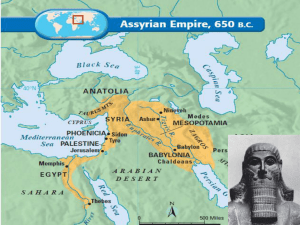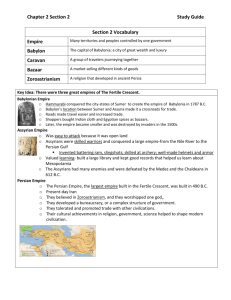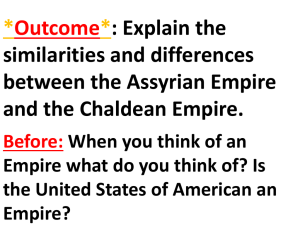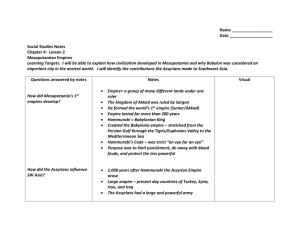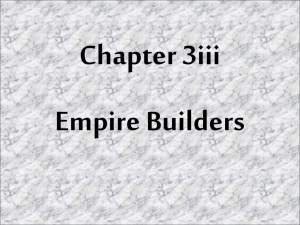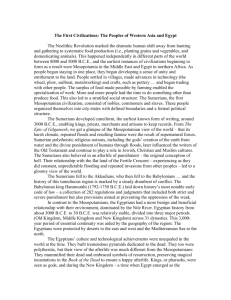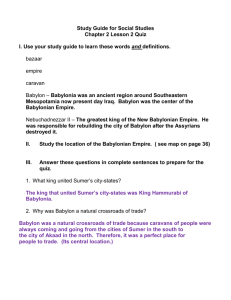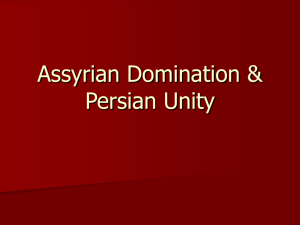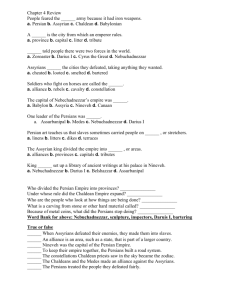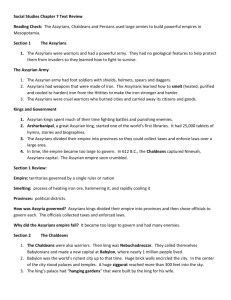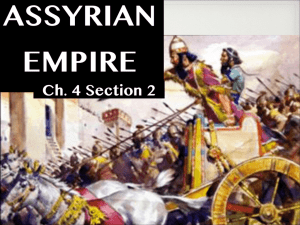Assyria & Persia
advertisement
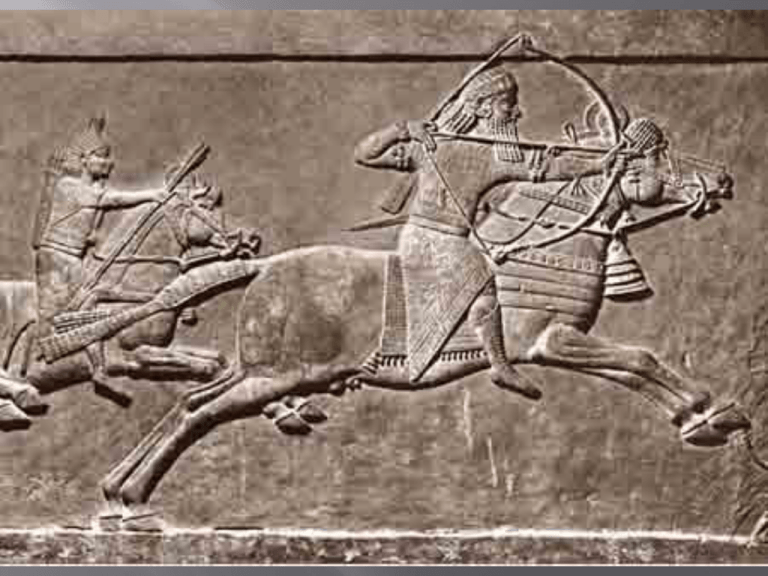
Began about 850 BC Was the largest empire to that time. Powerful and well organized Constant warfare Empire from Egypt to Mesopotamia The Assyrians treated conquered people with brutality. They burned cities, often killing or enslaving all the inhabitants. Epic of Gilgamesh – among the first known literature. A series of poems started about 2000 BC in Sumer Preserved by the Assyrians The Assyrians also sent conquered people into exile. Exiled people were sent to far away places in the empire. When they conquered the Hebrews, they sent them to exile in Babylon, the same city in which Hammurabi wrote his famous code of laws. The Assyrians’ brutality backfired. Conquered people from Mesopotamia and modern day Iran revolted and destroyed the Assyrian empire. The vacuum left by the Assyrians allowed the Persians to step in and conquer the region. The Persians come from modern day Iran Cyrus, the first Persian emperor began conquering neighboring kingdoms in 550 BC The Persian Empire was huge- at it’s height, it stretched from Greece to Egypt to the Indus River Greece Turkey Mediterrane an Sea Egypt Unlike the Assyrians, the Persians showed conquered people tolerance. Freedom to: Practice religion Not be brutally killed or enslaved From the writing on this cylinder, we know that after conquest of Babylon, Cyrus ordered troops to treat new subjects with kindness, to protect them and avoid any mistreatments. He restored ruined temples, and freed the Jewish people from captivity. Governing such a huge territory was a challenge The Persians divided the empire into 20 satrapies, which are like states Each had a satrap, or governor The Emperor also appointed military leaders and tax collectors for each satrapy. Bureaucracy • Roads sped travel and communication – Made administering the empire easier Started by Persian prophet named Zoroaster He taught that the earth is a battleground for the spirits of good and the spirits of evil. Believed that there was only one god, and that god would judge people. Traces of Zoroastrianism – like the idea of Satan and angelsfound in Judaism, Christianity, and Islam. Introduced standard coins Borrowed from Lydians in Asia Minor Lydian Persian
